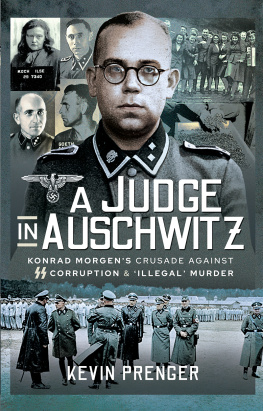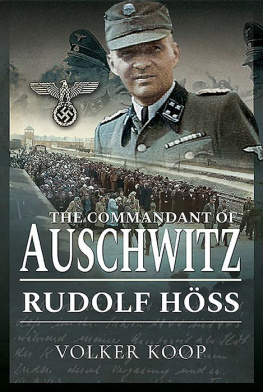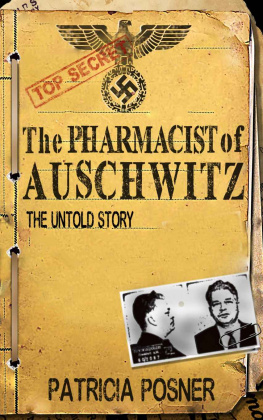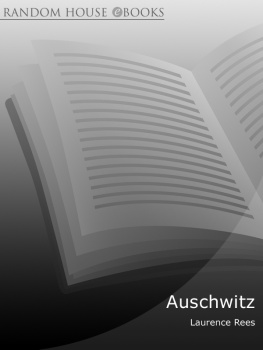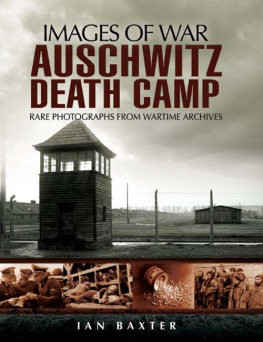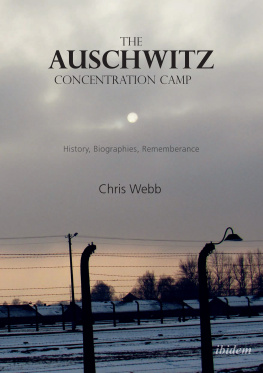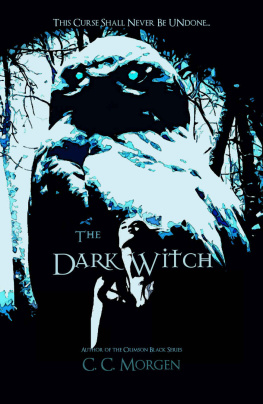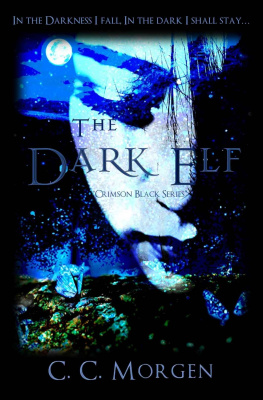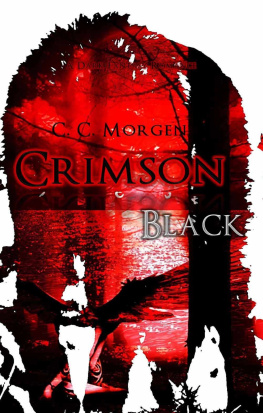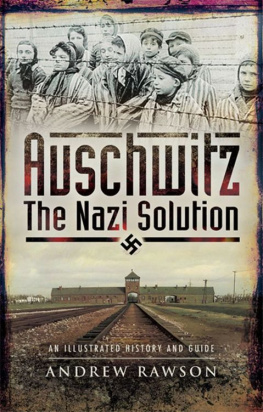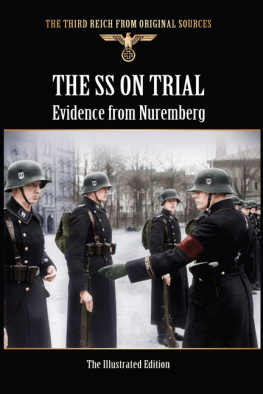
A Judge in Auschwitz
A Judge in Auschwitz
Konrad Morgens Crusade Against SS Corruption & Illegal Murder
Kevin Prenger
Translated from Dutch by Arnold van Wulfften Palthe, 2020
First published in Great Britain in 2021 by
Pen & Sword Military
An imprint of
Pen & Sword Books Ltd
Yorkshire Philadelphia
Copyright Kevin Prenger 2021
ISBN 978 1 39901 876 0
ePUB ISBN 978 1 39901 877 7
The right of Kevin Prenger to be identified as Author of this work has been asserted by him in accordance with the Copyright, Designs and Patents Act 1988.
A CIP catalogue record for this book is available from the British Library.
All rights reserved. No part of this book may be reproduced or transmitted in any form or by any means, electronic or mechanical including photocopying, recording or by any information storage and retrieval system, without permission from the Publisher in writing.
Pen & Sword Books Limited incorporates the imprints of Atlas, Archaeology, Aviation, Discovery, Family History, Fiction, History, Maritime, Military, Military Classics, Politics, Select, Transport, True Crime, Air World, Frontline Publishing, Leo Cooper, Remember When, Seaforth Publishing, The Praetorian Press, Wharncliffe Local History, Wharncliffe Transport, Wharncliffe True Crime and White Owl.
For a complete list of Pen & Sword titles please contact
PEN & SWORD BOOKS LIMITED
47 Church Street, Barnsley, South Yorkshire, S70 2AS, England
E-mail:
Website: www.pen-and-sword.co.uk
Or
PEN AND SWORD BOOKS
1950 Lawrence Rd, Havertown, PA 19083, USA
E-mail:
Website: www.penandswordbooks.com
Chapter I
Horrific Scenes
S tacks, a few feet high, no humans anymore, just dry bones. That was what Czech-born
For people like Hartman and Chillag, the wait for the liberation of Buchenwald shouldnt have lasted any longer. The camp near Weimar was overcrowded after more than 10,000 weakened prisoners (mostly Jews) had arrived from Auschwitz and Gross-Rosen in January 1945, after exhausting marches and transports by train. At the end of March the camp housed 80,436 inmates. As American troops were approaching, inmates who were still fit enough were evacuated from Buchenwald on foot in deplorable conditions. About one third of the evacuated inmates perished during these death marches; exhausted and undernourished as they were, they could not keep up with the pace and were shot by their guards and left on the wayside. In the morning of 11 April the remaining inmates had seized control of the camp, and later that day the first Americans arrived. They found only 21,000 survivors. Jan Hartman remembers: One sunny day a well-dressed American soldier appeared at the far end of the barracks. That was liberation. He and his brother spoke English and There was no question of a joyful atmosphere though. The scenes the Americans had witnessed in Buchenwald and previously in other concentration camps were just too gruesome.
Buchenwald was not the first concentration camp to be liberated by the Western Allies. That honour fell to concentration camp Vught in the Netherlands where the Canadians only found empty barracks on 26 October 1944, after the inmates had been evacuated by the to other camps in Germany a month earlier. On 4 April 1945 the Americans saw before their very eyes the horrific scenes that are generally known today. In a satellite camp of Buchenwald, in the small town of Ohrdruf, troops of the 4th Armored Division of General George Pattons 3rd Army encountered dozens of corpses and numerous severely weakened inmates. The most gruesome sight was half burned corpses on pyres made of railway sleepers. Those were the remains of the efforts of the camp guards who had attempted to erase the traces of their crimes. They had opened the mass graves and tried to cremate all the corpses but failed to finish the job on time.
When Allied supreme commander Dwight Eisenhower and Patton paid a visit to camp Ohrdruf on 12 April they were shocked by what they saw. To reveal the crimes of the Nazis to the outside world, photographers and film crews were ordered to record the liberation of the German camps. They recorded how German civilians, ordered by Patton in Buchenwald, had to witness the crimes which had been committed under their very noses. With their mouths covered with handkerchiefs and tears in their eyes they walked past a stack of emaciated corpses. Spread out in front of them on a table lay pieces of tattooed human skin, human body parts in spirits, and a lamp shade allegedly made of human skin.
Throughout the war at least 56,000 inmates had perished in Buchenwald, but that was only the tip of the iceberg. The Allies encountered similar scenes in each concentration camp that was liberated in the spring of 1945. In Bergen-Belsen the number of corpses was so vast the British had to use a bulldozer to move all bodies into a communal grave to contain a further outbreak of typhoid fever. In the camps liberated by the western Allies, some 600,000 inmates had died. The numbers of deaths in camps liberated by the Soviets were even higher. In Auschwitz alone 1.1 million people had been killed, mostly Jews who had been murdered in gas chambers. The gruesome images of the liberated camps spread across the world and were shown at the Nuremberg trial where the surviving Nazi bigwigs had to atone for their crimes. The concentration and extermination camps of Nazi Germany became the symbol of Hitlers criminal regime. After the war hundreds upon hundreds of camp commanders and guards stood trial for the horrendous crimes they had committed.
A name that is missing from the long list of personnel from the camps who were brought to court after the war is that of Karl Otto Koch. He was in charge of camp Buchenwald from 1937 to 1941. It was not an Allied tribunal or a court in post-war Germany but an SS court that sentenced him to death. As late as 5 April 1945, as American troops were closing in on the camp, he was executed in Buchenwald by an SS firing squad. The case against Koch had started with a judicial investigation into corruption in Buchenwald conducted by SS judge Konrad Morgen. He was furious over the facts he discovered: along with some cronies, Koch had stolen from inmates and had abused and murdered them. For these reasons, he and a number of co-suspects, including his wife, notorious for her cruelty, were brought before a court of the SS.
Knowing everything we know today about Nazi Germany, it seems odd that Koch and his wife were charged with crimes which to us are synonymous with the regime in the German concentration camps, where theft, torture and murder were the order of the day. But Koch was not the only camp employee who had to deal with a judicial investigation by Konrad Morgen. After Buchenwald, Morgen launched investigations into crimes committed by employees in various large camps; even in Auschwitz, the location of the largest mass murder by the Nazis. Morgen took judicial steps against various notorious camp commanders; for example, against Amon Gth, the sadistic commander of camp Paszw in Poland and against Rudolf Hss, who had been in charge of the assembly-line gassing of Jews in Auschwitz.
After the war Morgen described himself as a warrior for justice who had done everything he could to protect inmates against the violent excesses of their jailers. His judicial investigation into the crimes of employees of concentration camps and the ensuing prosecution of guards and commanders do not seem to fit into the history of the Third Reich where the most hideous crimes were part and parcel of government policy. Yet, his role was part of the history of Nazi Germany just like the henchmen he prosecuted.
Next page
